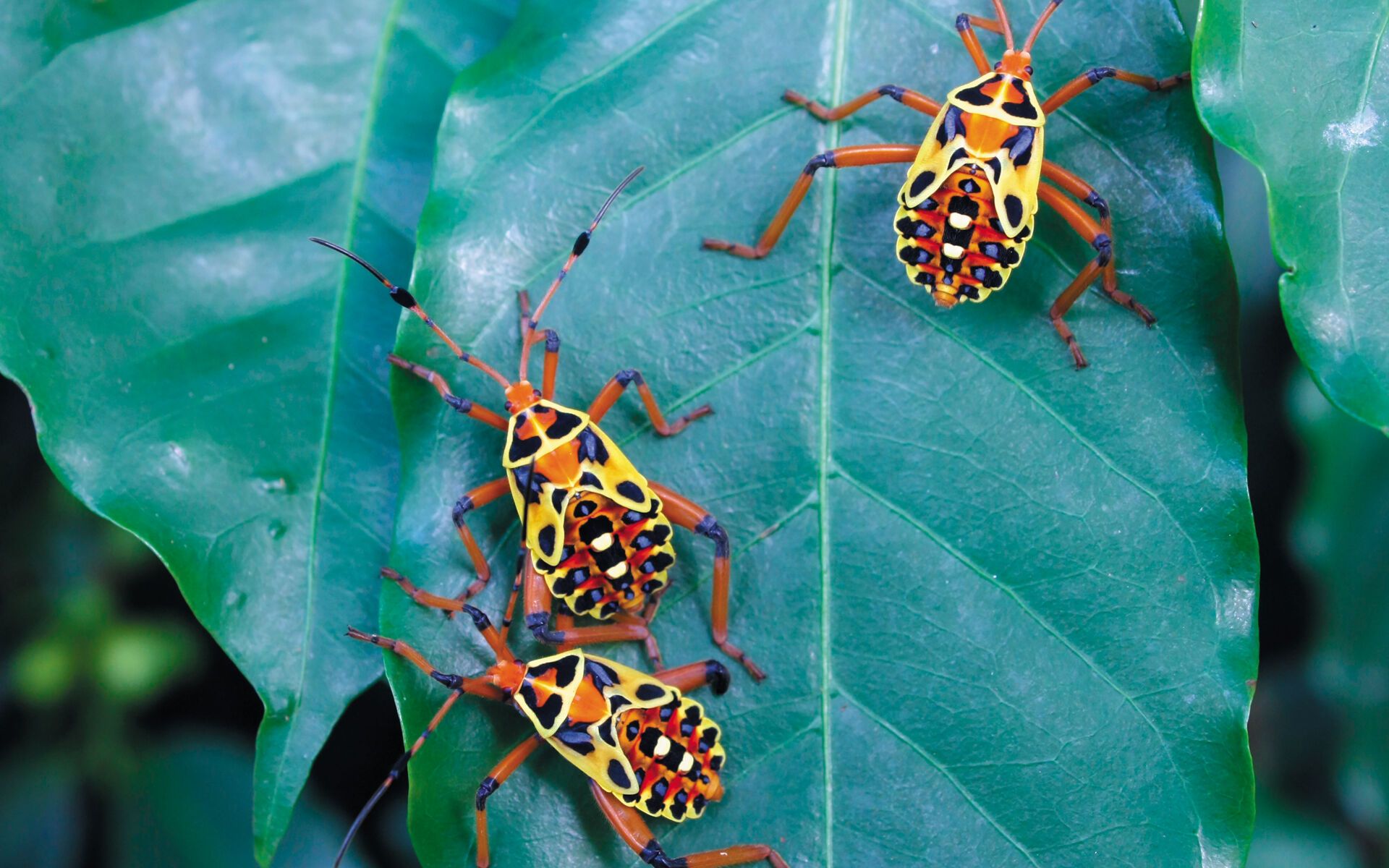Science Square (Issue 154)

In This Article
-
Air pollution may underlie the global decline in insect numbers
-
New evidence for an alien life in Mars?
-
AI-powered robots as a potential remedy for loneliness epidemic
Air pollution may underlie the global decline in insect numbers
Wang et al. Short-term particulate matter contamination severely compromises insect antennal olfactory perception. Nature Communications, July 2023.
Communication plays a critical role in the lives of animals, as the loss of communication sways their ability to find food and locate mates to reproduce. Odors are the main source of communication for insects, which use their receptors on the antennae to detect odor molecules to find the location of a potential food or mate. New research shows that particulate air pollution has a detrimental impact on insects. Particulate matter, which is typically released from the combustion of fossil fuels, includes toxic heavy metals and organic substances. While the large particles (>10 micron) can irritate eyes and nose, smaller particles (<2.5 micron) can travel deep into the human lungs as well as accumulate on the antennae of insects shown in this study. The researchers studied the houseflies collected from urban Beijing and rural Australian areas and found that surprisingly both populations had smaller particulate matters accumulated on the antennae of diverse insects, including bees, wasps, moths, and flies. Electron microscopy analyses revealed that these insect antennae contained hazardous materials such as silicate, sulfurate, fly ash and metal particles. The researchers utilized some neural behavior tests and found that exposure to air pollution, even for 12 hours, significantly reduced the strength of odor-related electrical signals in the fly brains and compromised their sense of smell. These results suggest that when insect antennae become clogged with pollution particles, insects will struggle to smell food, a mate, or a place to lay their eggs, and it follows that their populations will decline. Remarkably, insects from remote and comparatively rural habitats have also similar contaminants showing how the particulate material can be carried thousands of kilometers, likely by air currents. Insects play fundamental roles in our ecosystem through the regulation of pests and diseases, pollination, and nutrient cycling. Air pollution is likely to be one key driver of global declines in insect populations, alarmingly calling for new global pollution regulations.
New evidence for an alien life in Mars?
Sharma et al. Diverse organic-mineral associations in Jezero crater, Mars. Nature, July 2023.
All known life in our planet is based on organic compounds, primarily composed of carbon and hydrogen. They're also present widespread in the universe including Mars and it has been
a big controversy whether the existence of organic compounds can be a signature of life alone. A recent data from Nasa's Perseverance rover has shed important insights into this question. Since 2021, Perseverance has been investigating the Mars’ Jezero Crater, a giant 28-mile-wide crater, which is thought to be a basin that once housed an ancient lake. Scientists believe that the Jezero crater was created from a meteorite's impact around 3-4 billion years ago and the conditions in this lake basin may have been favorable to life. The recent evidence was collected using an instrument called SHERLOC, which is mounted on the robotic arm of the six-wheeled rover that enables to carry out the analysis of organic molecules and detailed mapping. Interestingly, the rover detected signatures in the crater floor rocks with a range of diverse organic molecules containing one or two rings of carbon. These classes of organic molecules seemed to occur with different spatial patterns within these compositionally distinct formations, potentially indicating a change in their levels over time. This suggests that there were either several distinct ways of synthesizing these organic compounds or that they were deposited and preserved by water, or in combination with volcanic materials. While scientists are excited about the great volume and diversity in the rocks collected, they are cautious to call this as a sign of alien life. There are both biotic and abiotic mechanisms that can form organic molecules. Infall from meteorites or water-rock interactions can also produce these organics abiotically. On the other hand, it is equally possible that an ancient life could produce these organics as well. Researchers can’t wait to look at these rocks in earthbound labs to draw more definitive conclusions. Mars Sample Return (MSR) mission is expected to launch from Earth around the late 2020s, but the trip should be obviously worth the wait.
AI-powered robots as a potential remedy for loneliness epidemic
Broadbent et al. Enhancing social connectedness with companion robots using AI. Science Robotics, July 2023.
A recent study suggests that in the era of growing social isolation, companion robots enhanced with artificial intelligence (AI) may one day help alleviate the loneliness epidemic. Loneliness is estimated to affect about one-third of the global population, leading to serious health issues including obesity, dementia, and even early death. Researchers in this study first map some of the ethical considerations for governments, policy makers, tech developers and clinicians, and urges all stakeholders to come together to rapidly develop viable and reliable guidelines for trust, agency, engagement, and real-world efficacy. Second, they developed a patient-rated outcome measure called the “Companion Robot Impact Scale (Co-Bot-I-7)” which aims to establish the impact on physical health and loneliness. Their preliminary results showed that amiable androids help reduce stress and even promote skin healing after a minor wound. The team also highlights that doctors agree with this idea. Among 307 care providers across Europe and US, 69 percent of physicians approved of robots providing companionship to relieve isolation and potentially improve a patients’ mental health. Commercially available companion robots like ElliQ have already demonstrated their ability to reduce stress and loneliness while helping older individuals maintain an active and healthier lifestyles. The team foresees that the newer generations of robots, embedded with more advanced AI programs such as ChatGPT and other generative AI models, hold the potential to establish even stronger social connections with humans by engaging in spontaneous conversations and even mimicking the voices of deceased loved ones. It is believed that with the appropriate ethical guidelines, there is potential to utilize robots in establishing a healthier society. While these robots are not intended to replace genuine human companionship, they serve as valuable tools to enhance well-being and support individuals experiencing loneliness, especially in the elderly demographic.









